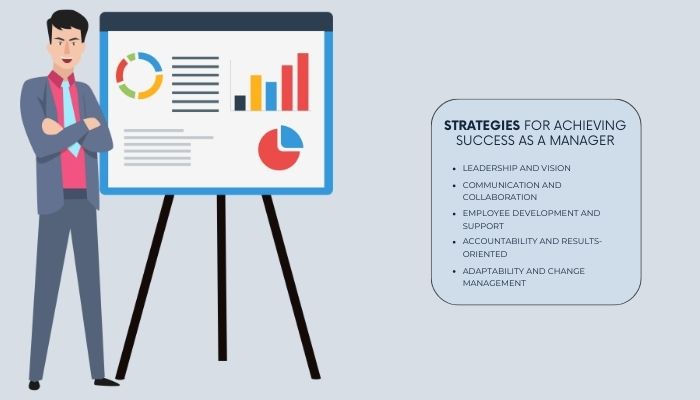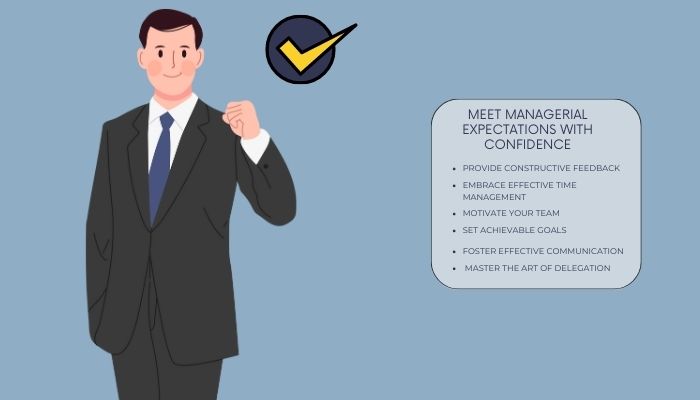Managing multiple projects, ensuring team alignment, effective client communication, and meeting deadlines are key responsibilities of a project manager. This challenging role requires a composed mindset, strong focus, and minimal distractions, while also being open and considerate towards the team. A skilled manager has the ability to unify a team and ensure successful project execution, whereas the absence of such a leader can jeopardize team dynamics and hinder project progress.
Recent research conducted by Gallup reveals that the absence of a supportive and understanding manager is one of the main reasons employees choose to leave their jobs. Regardless of the job’s perks, individuals tend to quit when they lack a positive working relationship with their manager. To foster a healthy team spirit, managers must address concerns and consistently motivate their team members to perform at their best.
To become an exceptional leader and provide an environment for employees to grow and thrive, it is crucial to understand the expectations of both managers and employees. This article delves into the expectations that managers should meet and what employees anticipate from their managers. By gaining this understanding, you can enhance your leadership skills and create a conducive environment for success.
Is it a regular thing to have managerial expectations?
Expectations serve as cognitive frameworks that shape our desired outcomes in the present, short-term, and long-term. The alignment of organizational expectations directly impacts individual and organizational performance.

Managerial expectations significantly influence leaders’ ability to fulfill their responsibilities effectively. Setting high expectations for oneself as a manager fosters pride and a sense of accomplishment. Even when projects deviate from plans, those in charge of planning and management can take pride in knowing they gave their best effort.
A well-defined set of managerial expectations paints a comprehensive picture of effective management in an organization. Many people already meet some of these expectations.
For companies, adopting and nurturing a culture of continual development is paramount. These expectations guide the necessary changes to ensure all employees are on the same page.
Managers may differ in their progress toward meeting these expectations. As the environment evolves, continuous learning and development are essential. Management expectations are statements that anticipate and guide future actions rather than merely reflect current practices.
In addition to the expectations managers set for themselves, they must consider the hopes and expectations of their supervisees. Employees expect managers to be approachable, professional, and open to communication. As a manager, you should address staff difficulties in a professional and helpful manner and help them reach their maximum potential.
Strategies for Achieving Success as a Manager
Having clear managerial expectations is crucial for the success of a team. From team expectations to performance goals, managers need to be accountable for meeting and exceeding these expectations. By understanding what the team and organization expect from a good manager, we can explore effective strategies for achieving success in this role.




1. Leadership and Vision
A good manager provides strong leadership by setting a clear vision and direction for the team. They inspire and motivate team members to work towards common goals, making strategic decisions aligned with organizational objectives. Effective communication, fostering collaboration, and nurturing a positive work culture are crucial. They prioritize professional development, offer guidance and support, and lead by example to cultivate a high-performing team. Meeting deadlines, managing resources efficiently, and adapting to changing circumstances are expected managerial skills. Ultimately, a good manager drives team success and contributes to the overall growth and achievement of the organization.
2. Communication and Collaboration
Effective communication is crucial for a manager’s success. They must have strong interpersonal skills and the ability to communicate clearly and efficiently with team members, stakeholders, and superiors. A good manager fosters collaboration, teamwork, and open dialogue among team members. They create an environment where everyone feels comfortable expressing their ideas and concerns.
By promoting effective communication, a manager ensures that information flows seamlessly, tasks are understood, and managerial expectations are met. Furthermore, they actively listen to their team, provide constructive feedback, and address any conflicts or challenges that may arise. Through effective communication, a manager builds trust, strengthens relationships, and enhances overall team performance.
3. Employee Development and Support
A good manager recognizes the potential in their team members and prioritizes their growth and development. They understand that investing in employees’ professional development not only enhances individual skills but also fosters loyalty and commitment within the team. This can be achieved by offering training programs, mentorship opportunities, and clear career advancement prospects.
By identifying each team member’s strengths and areas for improvement, a manager can tailor development plans to meet their specific needs. They provide ongoing feedback and guidance to help employees acquire new skills, broaden their knowledge, and expand their responsibilities.
By supporting their team’s growth, a manager not only cultivates a skilled workforce but also creates a positive and engaging work environment. This investment in professional development demonstrates that the manager values their team members’ long-term success and is committed to helping them reach their full potential.
4. Accountability and Results-Oriented
Managers drive results by setting performance expectations, establishing KPIs, and holding team members accountable. They ensure alignment with organizational goals and consistently monitor progress.
A good manager fosters a collaborative environment, provides growth opportunities, and invests in employee development to enhance skills and foster loyalty. They balance driving results with supporting and empowering their team to achieve desired outcomes.
5. Adaptability and Change Management
In today’s dynamic business environment, managers must be adaptable and skilled in managing change. They navigate uncertainty, adapt strategies, and guide their team through transitions. A good manager embraces innovation, encourages creative problem-solving, and fosters a culture of continuous improvement. They stay abreast of industry trends, identify opportunities for growth, and promote a learning mindset among team members. By fostering a culture of adaptability and innovation, managers ensure their teams stay competitive and thrive in evolving markets.
Meet Managerial Expectations with Confidence
Being a manager means being responsible for your team and the individuals who work for you. Managerial expectations are placed on both you as the team leader and your employees. Here are six strategies to meet managerial expectations with confidence:




1. Provide constructive feedback
Frequent and high-quality feedback is critical for your employees’ growth and development. As a manager, providing constructive feedback benefits both parties, fostering alignment, productivity, and effectiveness within your team. It empowers individuals to enhance their performance, address areas for improvement, and capitalize on strengths.
By creating a feedback-rich environment, you ensure that your team understands their responsibilities and feels comfortable approaching you for guidance and support. This not only builds trust but also cultivates a culture of continuous learning and improvement, leading to enhanced individual and team performance.
2. Embrace effective time management
As a manager, effective time management is crucial for maintaining a healthy work-life balance while driving business growth. Embracing efficient organizational practices allows you to optimize your productivity and prioritize tasks effectively. Continuous planning enables you to anticipate upcoming projects and allocate time accordingly. Blocking time in your calendar for important activities helps you stay focused and avoid distractions.
Setting realistic objectives within your time constraints ensures that you work towards achievable goals while avoiding burnout. By mastering time management, you can maximize your efficiency, make the most of your available time, and create a harmonious integration between your professional and personal life.
3. Motivate your team
Motivating your employees is a key responsibility as a manager, as it directly impacts their engagement and contributes to the overall output of the team. By recognizing and understanding the unique abilities, interests, and talents of your employees, you can create an environment that fosters happiness and satisfaction at work. Encouraging your team members to utilize their strengths not only benefits the individual but also enhances the productivity and effectiveness of the team as a whole.
By aligning tasks and responsibilities with their skills and interests, you can inspire and empower your employees to perform at their best and make valuable contributions to the company’s success. As a manager, your role is to cultivate a positive and motivating work environment where each team member feels valued, supported, and empowered to reach their full potential.
4. Set achievable goals
Teamwork thrives when there is a shared sense of purpose. It unifies the team, boosts engagement, and fuels productivity. However, excessive pressure can lead to exhaustion and frustration. Set achievable goals that the entire team can work towards while encouraging individual goal-setting for personal growth. Strike a balance between challenging and attainable objectives to maintain motivation and drive.
By fostering a collaborative environment with a clear direction, you empower your team to excel and achieve collective success.
5. Foster effective communication
Open and honest communication forms the bedrock of a thriving team, regardless of whether interactions occur in person or online. Cultivate strong interpersonal skills by fostering an environment where ideas, perspectives, information, and expertise can be freely shared. Clearly, articulate tasks, celebrate recent achievements and highlight areas needing attention.
Actively listen to feedback, engage in meaningful discussions, and promote a culture of open communication. By nurturing effective communication channels, you strengthen collaboration, enhance understanding, and foster a cohesive and high-performing team.
6. Master the art of delegation
Effective managers demonstrate self-awareness and recognize their limitations, delegating tasks to capable team members. They understand that no matter how skilled they are, they can’t handle everything alone. By assessing their team’s talents and strengths, they identify the most suitable individuals for specific responsibilities.
Delegation not only empowers team members but also cultivates a sense of ownership and professional growth. Leaving ego aside, managers build a collaborative environment where everyone’s strengths contribute to the team’s success. Embrace delegation as a strategic tool, and watch your team thrive and excel.
Onethread: Meet Managerial Expectations with Ease
Onethread empowers managers to meet and exceed expectations. With features for time management, collaboration, goal tracking, and effective communication, Onethread supports managers in various areas.




- Time Management: Onethread offers efficient project management tools that enable managers to organize tasks, collaborate with team members, and plan projects effectively, ensuring optimal time management.
- Collaboration and Localization: Onethread enables seamless collaboration with multi-company capabilities, unlimited discussion rooms, and supports localization in Bangla and English for improved understanding and communication.
- Cost-Effective and Flexible Payment: Managers save up to 50% per user, with flexible payment options via Visa, Mastercard, and mobile banking.
- Task Management: Onethread streamlines task management with subtasks, file attachments, priority settings, customizable views, reminders, and more, enhancing productivity.
- Effective Messaging: With Onethread, managers can create unlimited discussion rooms within projects and directly message assignees, promoting seamless communication and collaboration.
- File Storage: Onethread provides up to 5GB of storage capacity, ensuring easy access and organization of project-related files and documents.
- User-Friendly Interface: Onethread provides a user-friendly interface with essential tools for efficient project completion, ensuring ease of use for managers and team members.
- Employee Training and Access Control: Onethread offers in-house training facilities to enhance employee understanding and usage of the platform. Managers also have access control options to assign user roles and manage feature permissions.
- Time Tracking and Installation Options: Onethread tracks task completion time for improved time management. Accessible through web browsers or dedicated apps on Windows, Mac, iOS, and Android devices.
Onethread empowers managers to optimize workflow, foster collaboration, track progress, and achieve excellence. For inquiries, visit our website and click “Contact Us.” We’re here to assist you with additional information and support.
In closing
being a manager can be challenging. The responsibilities can seem overwhelming, with countless tasks to handle and various approaches to managing people. It’s important to recognize that individuals in your team may have different perspectives on work and life, and understanding these differences can help you build a more diverse and impactful team.
Remember that it takes time, experimentation, and learning from both successes and failures to grow into an effective manager. Embrace the journey with confidence, knowing that you will gradually develop the skills and expertise needed to excel in your role.
Wishing you the best of luck as you navigate the path of being a manager!
